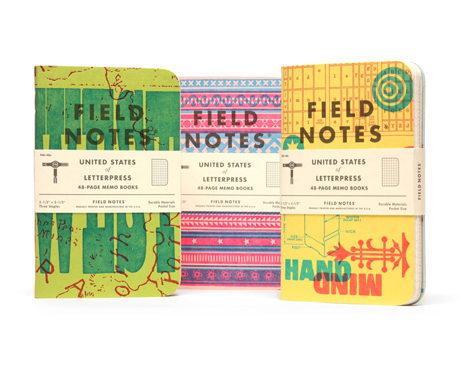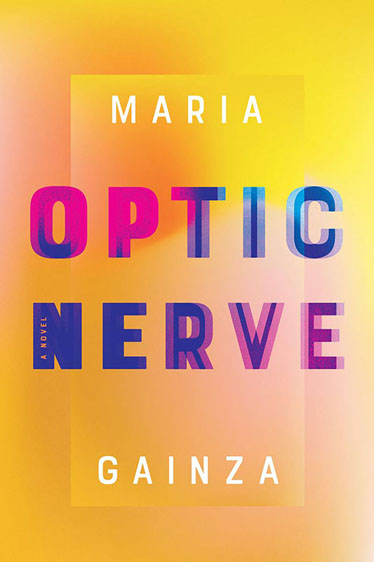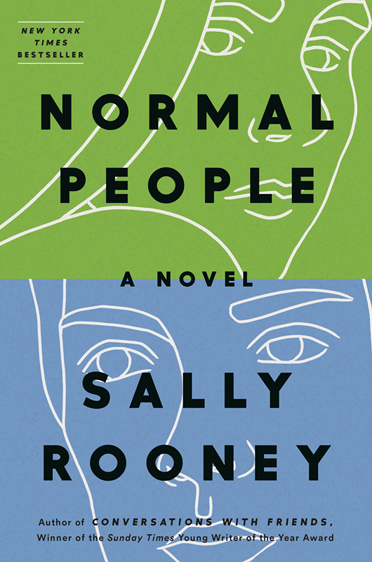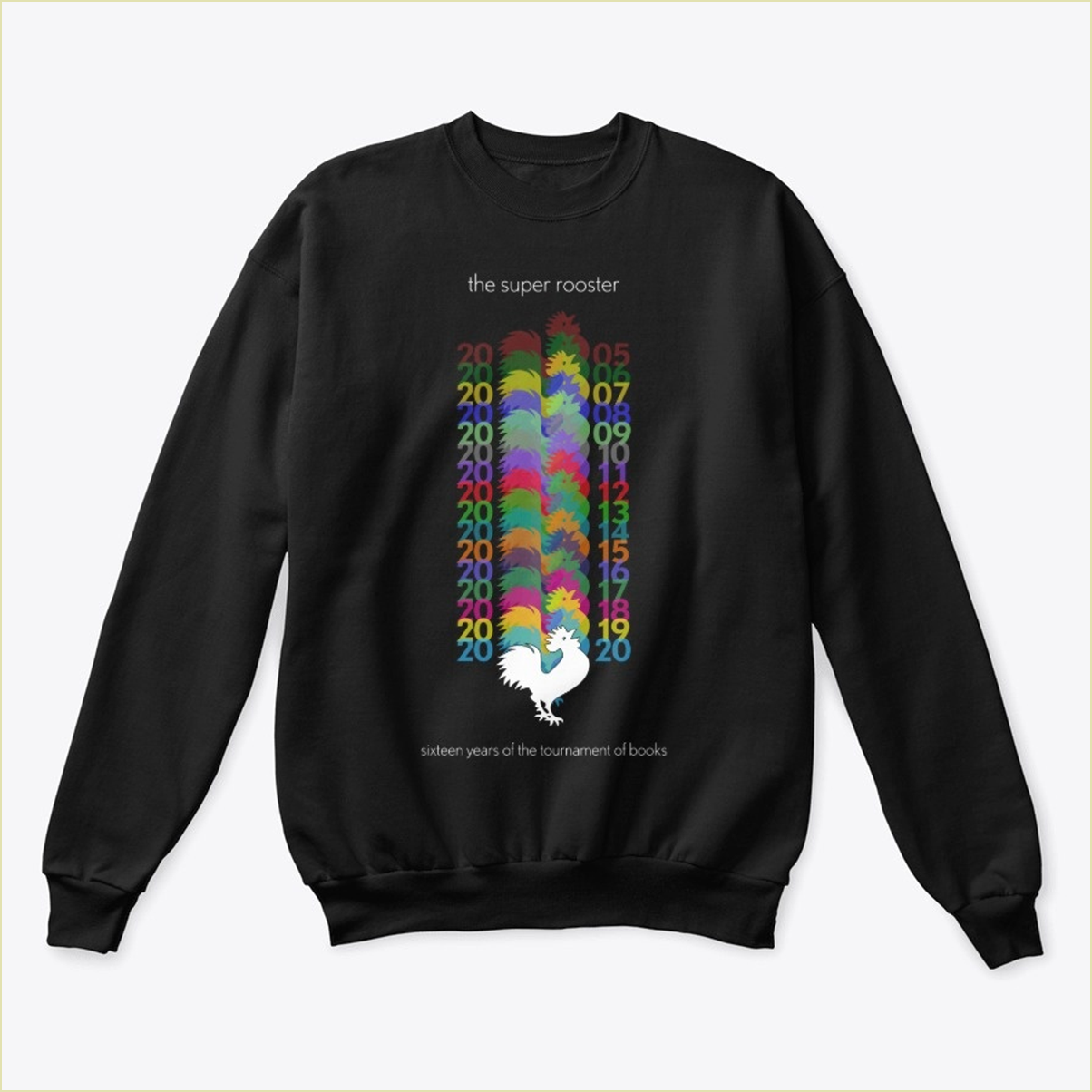-
Oct. 29, 2020
Zombie Round
-
María Gainza
ZOptic Nerve
v.
Normal PeopleSally Rooney
-
Judged by
Victor LaValle
It feels strange to read two books about the distant past, one after the other. To be clear, both novels are contemporary: Optic Nerve, our resurrected Zombie, is set in Argentina, and Normal People begins in 2011 and ends in 2015. And yet, as I sit at my desk typing this in a pandemic-tattered New York City—to say nothing of the planet as a whole—both of the worlds depicted in these excellent novels seem like portraits of lives from eons ago.
But let me be more specific in my summaries. Normal People, Sally Rooney’s second novel, is the story of Marianne and Connell, teenagers growing up in a rural Irish town. Marianne is smart and wealthy. Connell is athletic and poor. Connell’s mother cleans Marianne’s home and this is how they become intimate. They become lovers but it must be kept secret. He feels it will be awkward if the kids at school know about them and Marianne offers that no one has to know. This secret exists between them, an aspect of their intimacy—a detail to be included, in Rooney’s deft hand, amid all the other information of a day at school.
Everything looked and felt sensuous: the stale smell of the classrooms, the tinny intercom bell that sounded between lessons, the dark austere trees that stood like apparitions around the basketball court. The slow routine work of copying out notes in different-colored pens on fresh blue-and-white lined paper. Connell, as usual, did not speak to Marianne in school or even look at her. She watched him across classrooms as he conjugated verbs, chewing on the end of his pen. On the other side of the cafeteria at lunchtime, smiling about something with his friends. Their secret weighed inside her body pleasurably, pressing down on her pelvic bone as she moved.
I’ve heard Normal People described in many ways—maybe most often as a novel about the trials and tribulations of millennials—but I felt the novel was most interesting as an inspection of cruelty and love. Marianne and Connell trade roles as the popular kid, the one with all the connections, and while they share caring moments, just as often they revel in the cruelty they can inflict on one another. And on others. The novel seems to question whether intimacy can ever be enjoyed without cruelty. And, even more, whether Marianne and Connell would be interested in one another without that element as a part of their relationship.
Optic Nerve is about a tour guide in Buenos Aires, a middle-aged woman who caters to the artistic interests of the moneyed class. She is from the upper class herself, though her job and her general struggles suggest a family history of great privilege rather than a life of such comfort. While she gives tours to the wealthy, she’s really more of a guide for the reader. Our narrator is deeply knowledgeable about, seemingly, the whole history of world art. As she views the work of magnificent artists, she contemplates the meaning of art and its connection to lived experience, the way that art transforms the viewer, or is transformed by the process of being viewed. It’s wonderfully heady stuff. At one point the narrator views a painting and sees the girl in the canvas as herself. She offers this:
What she lacks in worldliness she makes up for in attitude; she can turn a look on you as withering as radioactive fallout, and her lips are sealed so tight that the sound of Velcro accompanies the parting. But inside she feels made of butter, and it takes all her patience, every ounce of her, not to lose her temper. Be a good girl! She wrestles nightly with the question: Is a person born bad, or does she become so?
Optic Nerve is described as autofiction while Normal People, I suppose, is called literary realism. I found both riveting as forms of investigation. Optic Nerve’s narrator and Marianne in Normal People were, for me, sites of mystery. The mystery of personality. Why am I the way I am? There’s never a single, simple answer to such a thing and— smartly—neither novel ever tells us everything there is to know. And yet, I did feel Normal People offered me more of the world around her characters and a sense of their particular time and place. Optic Nerve brilliantly inhabits its narrator and her interior life, but in the end I wished for more company.
Match Commentary
By Lauren Oertel & Rosecrans Baldwin
Rosecrans Baldwin: Today, in our last Zombie match, we’re joined by Lauren Oertel for the commentary. Lauren, please introduce yourself!
Lauren Oertel: Hello, and it’s great to be here! It feels like much longer, but I’ve only been following the ToB for about three years now, starting with the longlist for the 2019 Tournament. Being introduced to My Sister, the Serial Killer through this competition was enough to hook me, along with the bonus community we have in the Tournament of Books Goodreads group. We organized a short-story tournament this year after the main one, and it was delightful.
Rosecrans: That’s really cool. Where are you residing at the moment?
Lauren: I’m joining the excitement from my home in Austin, Texas, where the pandemic was especially rough during our summer months, which are too unbearably sweltering to enjoy safe outdoor activities. We’re very ready for a fall cooldown and extended walking opportunities.
 Field Notes® Limited Edition for the Fall of 2020 is the “United States of Letterpress,” which features the work of nine independent letterpress shops from across America. This series demonstrates a wide array of craftsmanship, ingenuity, and love for the age-old and tactile process of letterpress printing. Check the the short documentary film too.
Field Notes® Limited Edition for the Fall of 2020 is the “United States of Letterpress,” which features the work of nine independent letterpress shops from across America. This series demonstrates a wide array of craftsmanship, ingenuity, and love for the age-old and tactile process of letterpress printing. Check the the short documentary film too.I was also unemployed for six months this past year, which was beyond challenging, but in May I was able to get a job as an organizer for Texas and New Mexico with Indivisible, so I’m grateful for the opportunity (and ready for all of our hard work to pay off with the upcoming election). With the pandemic eliminating a majority of our favorite activities (I dance Brazilian Zouk, my partner and I love traveling, playing soccer, going to concerts, etc.), I’m spending most of my free time reading. I normally read a lot, but I’m about to reach 200 books so far this year, which is more than usual.
Rosecrans: Wow! What type of stuff?
Lauren: I read a decent amount of literary fiction, nonfiction (especially memoirs), poetry, and a bit of YA. Some of my favorites so far this year have been Transcendent Kingdom by Yaa Gyasi, All Boys Aren’t Blue by George M. Johnson, Cuicacalli/House of Song by ire’ne lara silva, and Clap When You Land by Elizabeth Acevedo. I was also thrilled to see Sharks in the Time of Saviors win this year’s Camp ToB. What have you been reading?
Rosecrans: To be honest, a lot of ToB judgments. Let’s start here: Have you read these books?
Lauren: Yes, I read Normal People in February and Optic Nerve in December. I listened to the audio versions of both of these, and that format did not work for Optic Nerve. I picked up a print version a few weeks ago and while I still didn’t love it, the story was easier to follow in print. Normal People was fine on audio, but it was one of my least favorites of this year’s Tournament (along with Overthrow), and I was shocked that it won. I am of course deeply disappointed that it has also made it this far in the Super Rooster, and may have grumbled, “only in 2020…” to myself a few times about this.
Rosecrans: It is definitely, at least in the Commentariat, a book that divides people. At the same time, as we discussed in the Commentariat on Tuesday, it’s extremely popular with the broader Rooster audience, and managed to win this year’s ToB thanks to its Zombie vote (i.e., people voted for it more than any other title in the event). How would you have decided today?
Lauren: I would have given this round to Optic Nerve. Lately I’ve had a low tolerance for books that feature wealthy white characters, without it being for the purposes of a sharp critique. I’ve read that Rooney wants to write “a Marxist novel,” but I did not pick up on that here. Maybe there were some subtleties I missed. Did you notice that connection?
Rosecrans: No, but perhaps she’ll write one down the road? Here’s a video of her talking about it.
Lauren: Anyway, so neither of these novels enchanted me, but Normal People also contained that element that just doesn’t work for me in literature: romantic intrigue. When it comes to the question of “will they or won’t they?” I’m almost never interested in the answer.
Rosecrans: Wait, hold on. Why not? If only because it’s such a steady component of literature. Is there an example of a time you were interested?
Lauren: Good question. It took me years to figure out this detail about my preferences. There have been countless novels that I enjoyed, but it seemed there was a romantic interest subplot thrown in there because writers or editors/publishers think readers can’t get through a book without that, maybe? It has gotten to the point where I celebrate books that have no romantic subplots (and I of course avoid the genre) because it just feels fresh. This doesn’t mean I don’t enjoy love showing up in literature, especially when it’s unconventional, the non-romantic versions, etc. A few examples that come to mind would be The Japanese Lover by Isabel Allende, The House of Broken Angels from last year’s Tournament, and also Girl, Woman, Other from this year. These might have had a bit of a romantic aspect, but it was made up for by the power of love in the relationships more than the back and forth, wondering about the happily ever after situation. Oh, and Cantoras by Carolina De Robertis was my favorite novel of 2019. It featured loving relationships and some romance, but the character building, unique setting, and hope in overcoming dictatorships won me over big time.
Rosecrans: Side note, I’m reminded here of the new book Ace by Angela Chen, which I’m really enjoying, about what it means to be asexual in a world so obsessed with sexual attraction. Anyway.
Lauren: I could go on about what fell short for me with Normal People, but it’s clear other readers (and judges) appreciated it, so I don’t want to dig myself in too deep. What did you think of this judgment?
Rosecrans: Judge LaValle, I think, decided in favor of Normal People for its greater impression of a world: character, time, era, shared feelings and instincts and fears. I’m often influenced by that too, and I appreciate that he didn’t quibble over whether or not that world matches ours, or some version of ours. I get the sense he felt persuaded enough by the world of Normal People that he didn’t need to look for cracks in the paint. At the same time, Optic Nerve just worked for me on nearly every level. It was one of my favorite books of 2019. So Normal People persuaded me, and I dig Rooney’s writing from a style point of view, but Optic Nerve made more of a personal connection and I’ll always side with that kind of experience over something more indebted to what sometimes feels like an aesthetic nod. Basically, if one book engages me more as a reader and one book engages me more as a writer, I side with the former.
Lauren: I honestly haven’t considered this metric for my reading experiences too much, so I’m thinking my stance on the importance of this persuasion factor is flexible. I tend to fall for the books that activate my heart and mind, without too much concern for this aspect of it. Optic Nerve was more of a mind than a heart book (but it could have been stronger if it gave us more to grasp with the emotional content), and Normal People missed the mark on both of those for me. I do see the judge’s point, however, in Optic Nerve being disconnected and distant. More grounding and context would have improved the story, in my opinion. I think Optic Nerve makes up for these gaps through clever observations—“Language learning: serious conversations about the most trivial subjects,” for example. I also appreciated the redwood rings scene toward the end, putting human and societal experiences in the context of a tree that lived for more than a thousand years.
Rosecrans: Both novels represent different trends seen in recent publishing. Could you imagine them published 10 years ago?
Lauren: As far as Optic Nerve, my first thought was whether autofiction is considered a recent trend. A quick search shows me that it’s not; the term was coined by Serge Doubrovsky in the ’70s.
Rosecrans: Perhaps a recently marketable trend, post-Knausgård.
Lauren: Considering the other elements at play with this one, I think I could easily see Optic Nerve being published 10 years ago, and perhaps it would have fared better against other novels in that time. I see Normal People as a bit of an anomaly in today’s adult literary fiction trends (although sometimes I’m guilty of being blind to what I’m ignoring). I would assume most books focusing on the romantic entanglements of teenagers would be better marketed as YA (which I have no problem with as a genre, there are plenty of YA books that I adore), but I recognize that I’m oversimplifying what Rooney did here.
Rosecrans: Yeah, and I think it’s worth noting—so many people go in the other direction—that Normal People really is a remarkable accomplishment. The second novel by a young woman, prized for its craft even by its critics, became an international bestseller, a culture marker, a handsome miniseries—I mean, love it or hate it, but Normal People is one of the most talked-about books of the decade, full of ideas and themes connected to the times, and I’m not at all surprised to see it in the championship match.
Lauren: Judge LaValle pointed out the themes of love and cruelty, and I noticed morsels of other serious topics sprinkled throughout. In general I’d expect darker and deeper themes in a story about high school and college-aged characters to make it a standout lit fic that wins awards and Tournaments, but my tastes often conflict with what’s most popular among readers and literary judges.
Rosecrans: When you look at what has changed over a decade, what do you see? For years ahead in publishing, what do you hope for?
Lauren: I’m hopeful that my personal preferences of focusing on literature that is diverse, representative, and “relevant” is also a trend (in a long-lasting way, of course). This connects to what I mentioned above about my aversion to white wealth being featured in literature. I want to read and discuss books by and about BIPOC and LGBTQ+ folks, people who have experienced poverty, people from underrepresented parts of the world, etc. I think with the events of this year especially, readers will no longer settle for overwhelmingly white books and characters. We have the opportunity to expand our minds and connections through the incredible literature that meets the above, and I’m hopeful this will only increase in the future.
Rosecrans: Geez Louise, will I double-down on that hope.
So, after this super month, tomorrow is our Super Championship. We have a pairing that is incredibly 2020 in so many ways—Commentariat, can we make a list of all the ways? Normal People meets A Mercy, to be decided by our panel of judges, plus a tiebreaking judge, our beloved longtime/retired Rooster producer Nozlee Samadzadeh. What do you think we’re in for?
Lauren: This is quite a surprising final matchup! Of the 19 of us who made bracket predictions in our Goodreads group, NONE of us predicted either of these books making it to the semifinals, let alone the finals. I don’t envy the pressure Judge Samadzadeh would be under as a tiebreaker for this decision. For me it would be an easy decision, but I just reviewed the judgments in favor of Normal People from earlier this year, and while it didn’t work for me, it did for many others. I honestly don’t remember much about A Mercy from reading it years ago, but one of my book clubs recently discussed Beloved, and Toni Morrison’s books tend to offer similar reading experiences. Her books are to be studied more than read, savoring each word and sentence at a time, stepping back to feel their meaning. Where I mentioned books touching my mind and heart above, Morrison’s writing touches my soul. As far as the panel of judges, I can see this being an agonizing decision to make. Setting my personal opinions aside, the votes might end up being close. I hope to see A Mercy win the Super Rooster, and I plan to read it again soon.
Rosecrans: Thank you, Lauren. And massive thanks to all of our reader commentators this month.
Also, we’re hosting our annual Contest of the Commentariat today. Add a comment below with your pick for tomorrow’s winner, along with your prediction of the final tally. There are 17 jurors, so an entry might be A Mercy (11-6), or Normal People (9-8). Two people will be randomly selected from everyone who picks the spread to receive a year-long subscription of gorgeous notebooks from the great people at Field Notes. We’ll also send them a piece of Rooster merch. Good luck!
See you in the comments, then join us tomorrow for the big finale!
New Super Rooster merch is now available at the TMN Store. As a reminder, Sustaining Members receive 50 percent off everything in our store. To find out why we’re asking for your support and how you can become a Sustaining Member, please visit our Membership page. Thank you.
Welcome to the Commentariat
Population: You
To keep our comments section as inclusive as possible for the book-loving public, please follow the guidelines below. We reserve the right to delete inappropriate or abusive comments, such as ad hominem attacks. We ban users who repeatedly post inappropriate comments.
- Criticize ideas, not people. Divisiveness can be a result of debates over things we truly care about; err on the side of being generous. Let’s talk and debate and gnash our book-chewing teeth with love and respect for the Rooster community, judges, authors, commentators, and commenters alike.
- If you’re uninterested in a line of discussion from an individual user, you can privately block them within Disqus to hide their comments (though they’ll still see your posts).
- While it’s not required, you can use the Disqus
tag to hide book details that may spoil the reading experience for others, e.g., “ Dumbledore dies .” - We all feel passionately about fiction, but “you’re an idiot if you loved/hated this book that I hated/loved” isn't an argument—it’s just rude. Take a breath.




